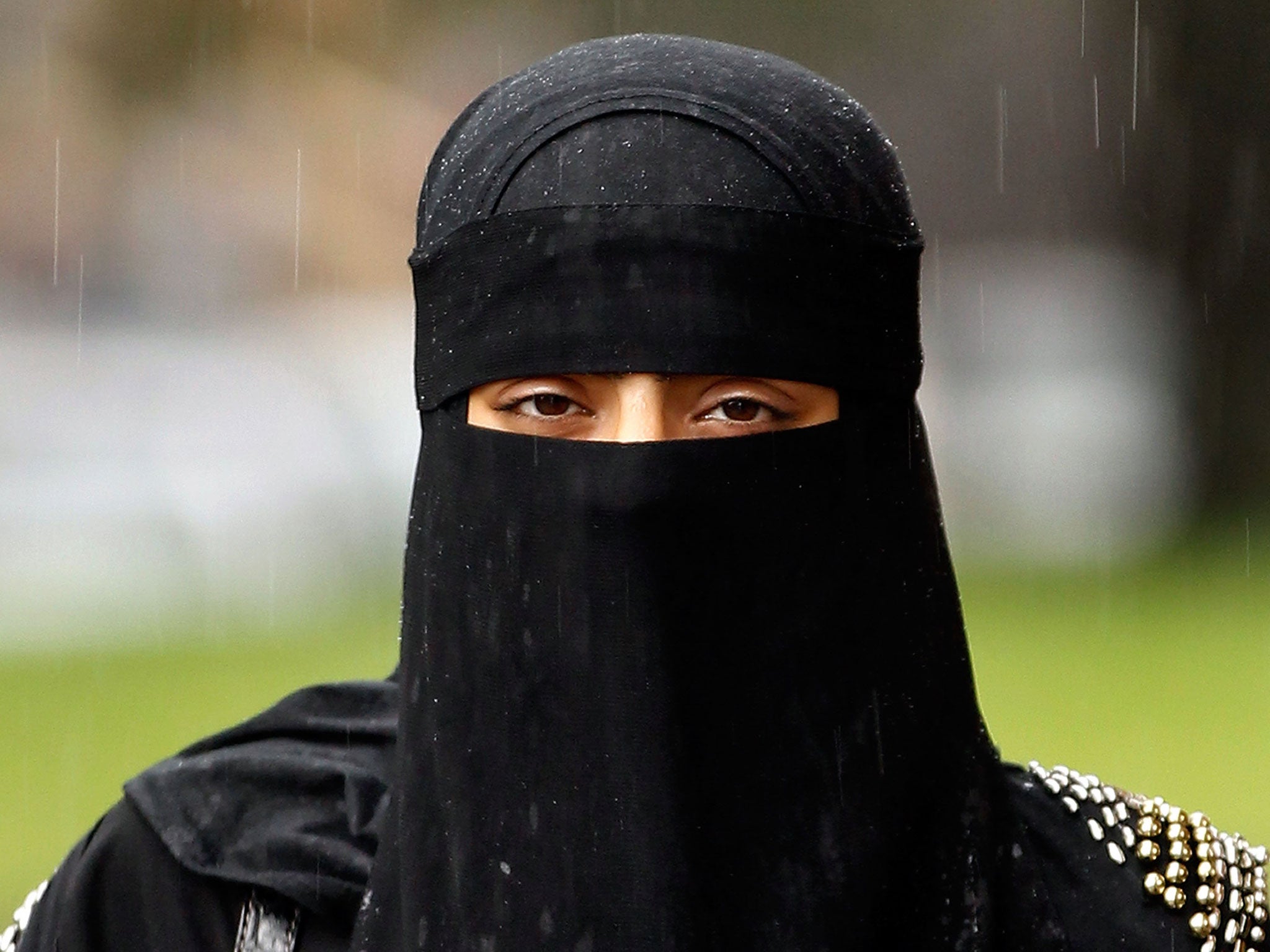Let's face it – the niqab is ridiculous, and the ideology behind it weird
Why everyone is being so polite? Religious expression is not an absolute right, and should be limited if it affects the rights of others

Here we are again, in the middle of another terribly polite discussion about the niqab. For anyone who hasn't followed the debate, that's the face-covering veil worn in this country by a minority of Muslim women. Should women be able to conceal their faces when they're giving evidence in court? What about women who work in schools or the health service?
A judge has issued a confused ruling that a defendant should be able to keep her niqab on in court, but must take it off while giving evidence. The Government has ordered a review of whether NHS staff should be able to conceal their faces from patients, with the Health Secretary Jeremy Hunt acknowledging he would prefer to see the face of the person who's treating him. But he says it's ultimately a matter for professional guidelines, not politicians.
Why so mealy-mouthed? The niqab is a ridiculous garment, adopted by a small (but growing) number of women and rejected by many mainstream Muslims. When I see someone wearing it, I'm torn between laughing at the absurdity and irritation with the ideology it represents. In secular countries, the notion that women have to cover their faces whenever they leave the house is rightly seen as weird, and runs counter to the principle of gender equality. Many brave women in the Middle East and Asia have died for the much more important right not to cover their faces, and I have little patience with women in this country who make a mockery of that struggle by trying to pretend they're the ones suffering oppression.
The question judges and politicians are struggling with is what to do about it. I'm not in favour of the French approach, which is an outright ban on the niqab and the burqa; I'm not keen on banning things and it risks creating martyrs. It makes more sense to treat the face-veil as a political statement and insist on our right to make one in return. Covering the face doesn't make anyone a better human being and the "modesty" argument doesn't wash; if you wear outlandish clothes, whether it's a face-veil or fancy dress, of course people will stare. Nor does the niqab discourage violence; evidence from Egypt suggests that veiled women are slightly more likely to suffer sexual harassment, probably because men regard them as easier targets than women in Western clothes. Does anyone seriously believe that women are safer in Iraq, Afghanistan or Iran, where most women wear the veil (many of them against their will) in one form or another? Wearing the niqab or the burqa is self-defeating, exposing women and girls to more oppression rather than less.
Where I think the state is entitled to intervene is when a woman's decision to cover has negative consequences on others, including her daughters; face-covering should never be a component of school uniform, let alone compulsory. Then there's the example of a courtroom: when someone is giving evidence, she should be subject to exactly the same rules as the rest of us. Vulnerable witnesses need to have their identities protected but as a general rule the judge, jury, defence and prosecution should be able to see witnesses' faces. I wouldn't expect to be allowed to appear in court in a balaclava, and the public good of open justice takes precedence over demands for special treatment on religious grounds.
As for the NHS, I'm aghast at the prospect of being treated by a health professional in a niqab. Patients often have to discuss intimate matters with GPs and nurse-practitioners, from sexual health to domestic violence. If someone doesn't trust me enough to let me see her face, I'm hardly going to feel comfortable about her carrying out an intimate procedure such as a cervical smear. Nor is it easy to imagine a man discussing the symptoms of prostate cancer with a health professional whose idea of "modesty" doesn't allow her to expose her nose.
At one level, it's hard to believe we're having this debate. The UK is a secular society in all but name. Human rights law is clear about the right to manifest religion but it isn't an absolute right, and can be limited when it conflicts with the rights of others. The demand by a small number of Muslim women to cover their faces in all circumstances clearly impacts on the rights of others, and requires a robust response. If a woman wants to wear the niqab in Tesco or on the 94 bus, I think we should let her get on with it. But when she wants to work with members of the public or becomes involved in the criminal justice system, that's a completely different matter.
Bookmark popover
Removed from bookmarks